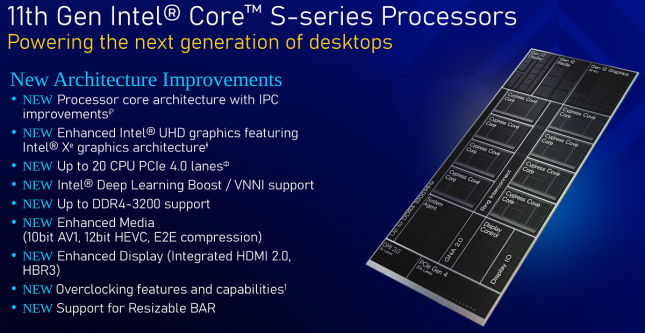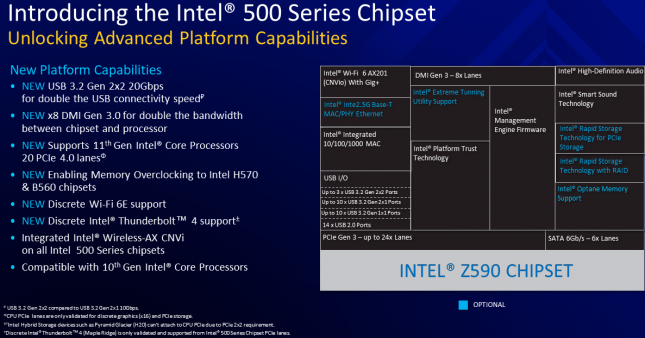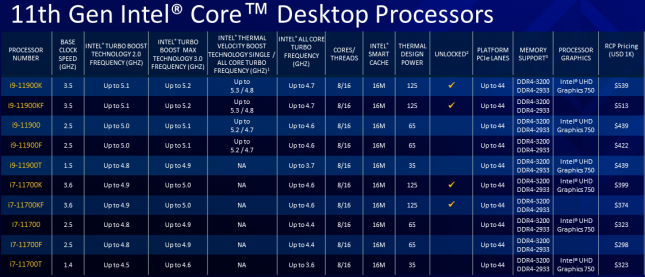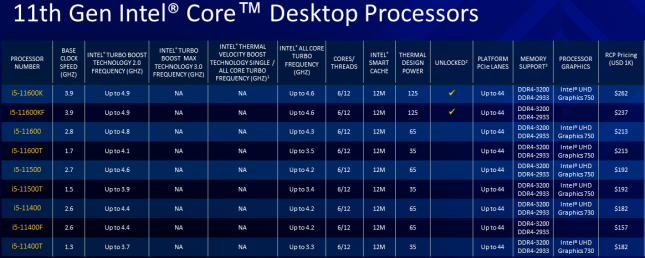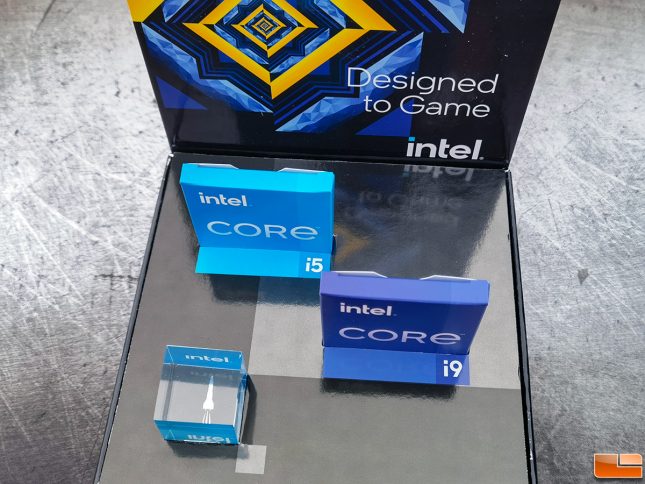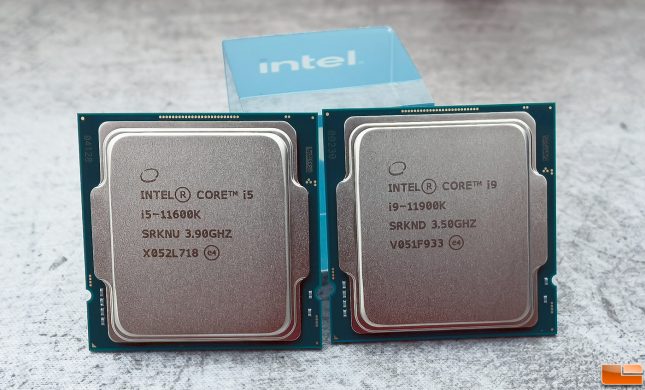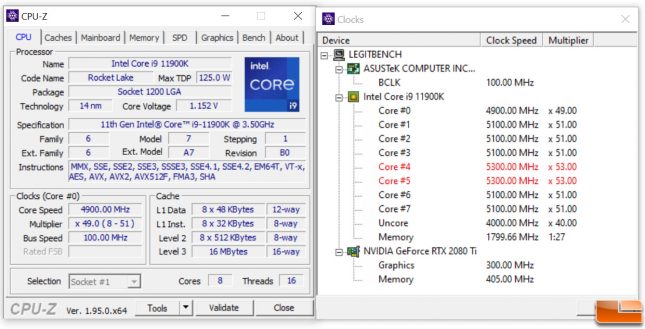Intel Core i9-11900K Rocket Lake CPU Review
Rocket Lake – Higher IPC w/ Less Cores
Intel 11th Gen Core ‘Rocket Lake’ desktop processors are fully launched and we are taking a look at the Intel Core i9-11900K 8-core, 16-thread processor today. Rocket Lake-S is a very interesting desktop processor series as Intel backported their 10nm architecture to 14nm. This gave Intel the ability to get higher clock frequencies, but the larger manufacturing process cost them two cores and higher power consumption.
Giving up cores may sound a bit crazy, but Intel ‘Rocket Lake’ CPUs have a 19% IPC improvement. Going from 10-cores to 8-cores for this series reduces the number of cores by 20%. The final result is a chip that will perform better or worse than it’s predecessor depending on the workloads. Most single-threaded tasks, lightly threaded applications and PC game titles should reap the benefits from the IPC gains. In heavily threaded workloads the Rocket Lake chips might struggle to handle all the software applications due to the limited number of threads. Intel saw the backport as as being the best path forward.
There is more to Rocket Lake-S than IPC gains though as the integrated graphics performance is 50% better and they also have AI integration for the first time with Intel Deep Learning Boost. You also have up to 20 CPU PCIe 4.0 lanes for the very first time and official support for DDR4-3200 memory. Intel has lagged behind their rival for official memory clocks for a long time and the lack of PCIe 4.0 support has helped AMD sell platforms. Intel is finally able to deliver features that consumers and enthusiasts have wanted for a long time.
11th Gen Intel Core S-Series processors us the LGA 1200 socket that was introduced in 2020 with 10th Gen Comet Lake processors. This means most Intel 400 series chipset boards should support Rocket Lake after a BIOS/UEFI update. Some Intel Z490 boards were PCIe 4.0 ready, but some were not. To get the best experience from the Rocket Lake processors the Intel 500 series chip was recently introduced. It features full PCIe 4.0 support, but also newer features like USB 3.2 Gen 2×2 (20Gbps), x8 DMI Gen 3.0, WiFi 6E support and more. These boards are already on the market.
11th Gen Intel Core S-Series processors us the LGA 1200 socket that was introduced in 2020 with 10th Gen Comet Lake processors. This means most Intel 400 series chipset boards should support Rocket Lake after a BIOS/UEFI update. Some Intel Z490 boards were PCIe 4.0 ready, but some were not. To get the best experience from the Rocket Lake processors the Intel 500 series chip was recently introduced. It features full PCIe 4.0 support, but also newer features like USB 3.2 Gen 2×2 (20Gbps), x8 DMI Gen 3.0, WiFi 6E support and more. These boards are already on the market.
So, let’s take a closer look at the Rocket Lake-S lineup as it is Intel’s answer to AMD’s Zen 3 lineup of desktop processors.
Intel has 19 different Rocket Lake-S processors to pick from right now in the Core i5, Core i7, and Core i9 series. Pricing start at $157 for the Core i5-11400F 6C/12T part and goes up to $539 for the Core i9-11900K 8C/16T chip. In fact, these are the only two core options available on 11th Gen Rocket Lake-S processors.
Intel sent Legit Reviews one Intel Core i9 and Core i5 processor from the Rocket Lake-S series to review. The focus today will be on the 11900K!
The Intel Core i9-11900K is the LGA1200 flagship CPU for the Rocket Lake-S series and offers 8-cores, 16-threads for $539. It has a 3.5GHz base clock, 4.7GHz all core turbo clock and the ability to boost up to 5.2GHz with Intel turbo boost max technology 3.0. This chip has 16M of Intel Smart Cache and the same 125W TDP found on its smaller sibling.
Here is a look at CPU-Z on both the Intel Core i9-11900K. It shows that on our particular chip that Core #4 and Core #5 are the two best cores.
On to the benchmarks!

